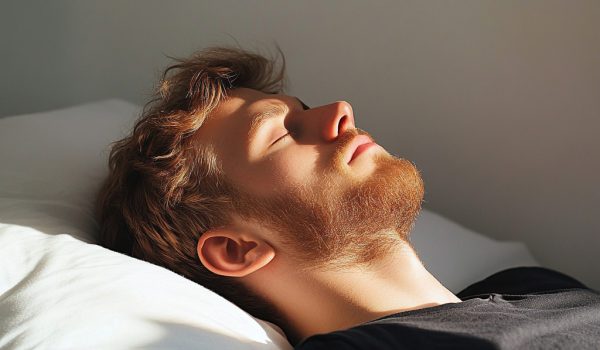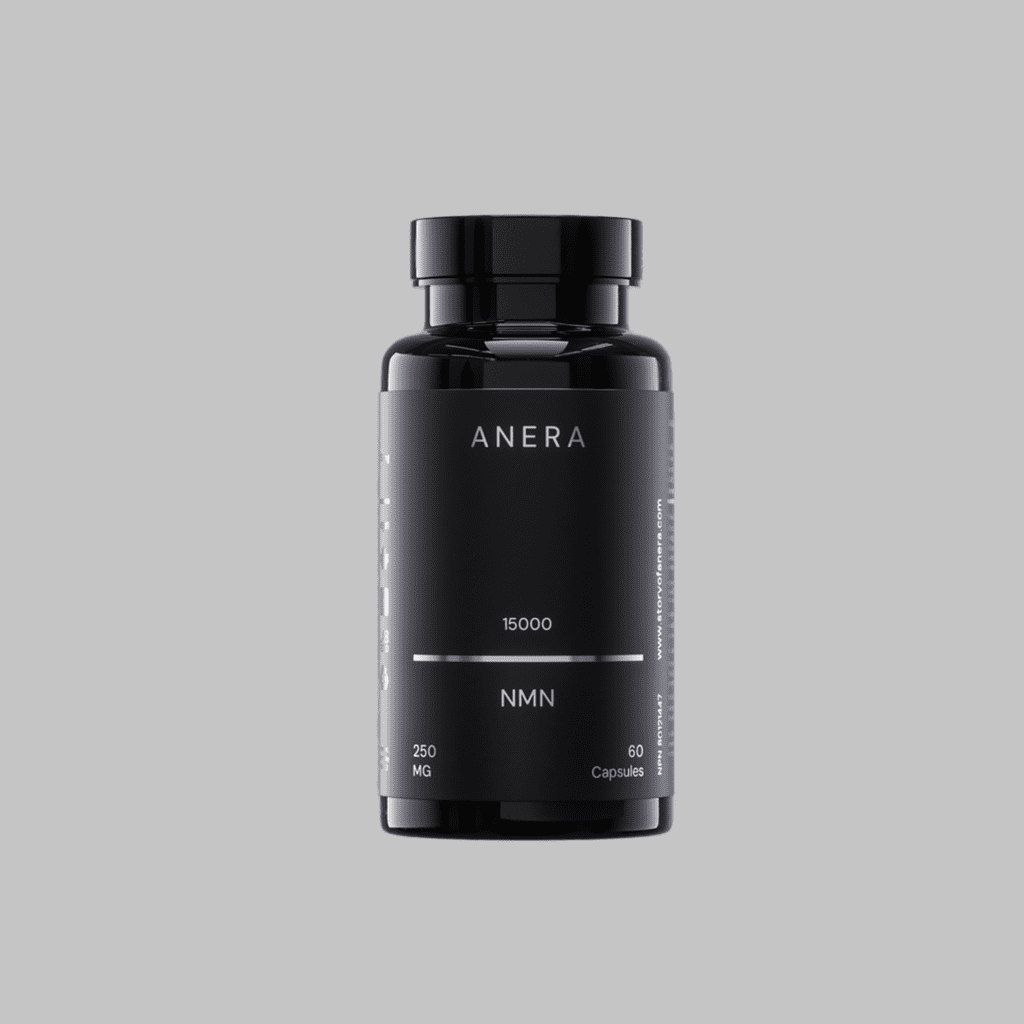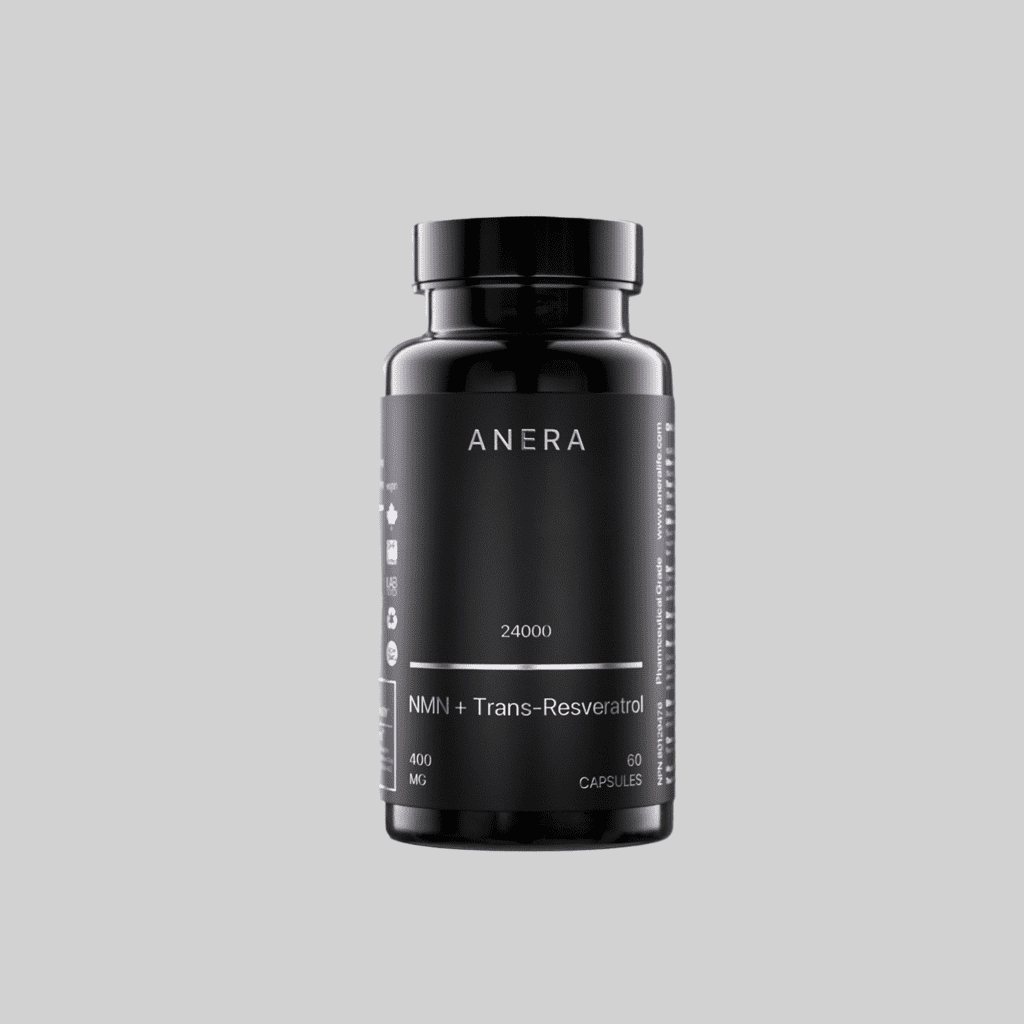The Surprising Connection Between NMN and Better Sleep Quality
Ever tossed and turned all night despite trying every sleep hack in the book? If you’re a fitness enthusiast juggling workouts, recovery, and stress, poor sleep can be a major roadblock.
Amid the buzz around anti-aging and performance-enhancing supplements, one compound is turning heads: NMN (Nicotinamide Mononucleotide). Best known for its energy-boosting and longevity effects, NMN is now being explored for a different benefit—sleep quality.
Could this popular anti-aging supplement be the key to better sleep? Let’s explore how NMN and sleep are connected and whether it’s the right sleep support tool for your wellness routine.
What Is NMN
NMN, short for Nicotinamide Mononucleotide, is a naturally occurring molecule found in all living cells. It’s a precursor to NAD+ (Nicotinamide Adenine Dinucleotide), a vital coenzyme that powers everything from metabolism to DNA repair.
As we age, our NAD+ levels decline, leading to fatigue, brain fog, and slower recovery. NMN supplements are designed to replenish NAD+ levels, offering benefits like increased energy, enhanced cellular repair, and potentially improved sleep.
No wonder NMN has exploded in popularity in biohacking and longevity communities.
Understanding the Science Behind Sleep
To understand how NMN might affect sleep, we first need a quick refresher on how sleep works.
Your body follows a circadian rhythm—an internal 24-hour clock regulated by light exposure and hormone levels, especially melatonin. This rhythm tells your brain when it’s time to sleep and when to wake.
Sleep is also when your mitochondria—the powerhouses of your cells—carry out critical repair and energy-restoration processes. NAD+ plays a vital role here, regulating these systems and supporting mitochondrial health.
When this balance is disrupted, sleep suffers.
How NMN May Influence Sleep
By increasing NAD+ levels, NMN and sleep research suggests it may help optimize the circadian rhythm and support more restorative sleep cycles. Research from Harvard and other institutions has linked NAD+ to the regulation of the biological clock, suggesting NMN might be a useful tool for syncing your internal timekeeping system.
Some users report better rest and deeper REM sleep cycles after taking NMN consistently. Others feel more alert and energized during the day—an indirect sign of better sleep quality.
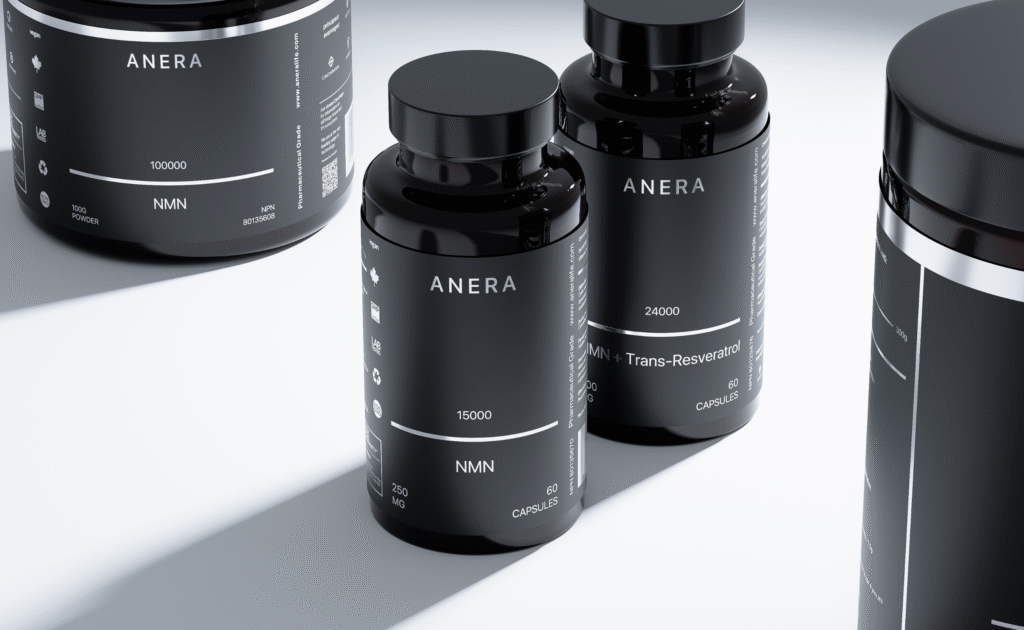
While human clinical trials are still limited, early studies in animals and anecdotal evidence from forums like Reddit and biohacking communities provide promising insights.
NMN and Melatonin Production
You might be wondering—does NMN affect melatonin, the sleep hormone?
Emerging science suggests there may be a supportive relationship. While NMN doesn’t directly increase melatonin, it supports mitochondrial function and cellular energy regulation, both of which influence melatonin synthesis.
In other words, NMN may help your body naturally maintain healthy melatonin levels, leading to smoother transitions into sleep.
When to Take NMN for Sleep Support
Timing matters when it comes to NMN, especially when considering the relationship between NMN and sleep.
Morning Dosing
Many users and experts recommend taking NMN in the morning. Why? Because NAD+ boosts cellular energy—and taking NMN late in the day may make you too alert, interfering with your ability to wind down.
NMN Before Bed?
While some report better sleep after nighttime NMN, this varies greatly. If you’re experimenting with NMN for sleep support, consider starting with a morning dose, then tracking your results in a sleep journal.
Timing tip: Combine NMN with calming habits like dim lighting and magnesium supplements at night for synergistic effects.
Potential Side Effects of NMN Related to Sleep
As with any supplement, NMN can have side effects, especially if misused.
Some users report difficulty falling asleep when taking NMN too late in the day. This may be due to elevated energy levels or overstimulation of metabolic activity.
Others experience vivid dreams or more nighttime awakenings—likely a sign of altered REM cycles.
To avoid issues:
- Start with a low dose (125–250 mg)
- Take NMN in the morning
- Monitor your sleep patterns
Real-World Experiences: What Users Are Saying
Reddit threads, biohacking forums, and YouTube reviews are filled with personal experiences on NMN and sleep:
“I started taking NMN in the morning, and my sleep got deeper within a week. I no longer wake up groggy.” — Reddit User
“NMN at night kept me wired. Switched to AM dosing—problem solved.” — Biohacker Podcast Comment
While some find improved rest and more REM cycles, others need to adjust their dose or timing for best results. The key? Experiment and track your sleep.
Other Supplements That Support Sleep
NMN is promising, but it works best as part of a well-rounded sleep support plan. Here are some natural allies:
| Supplement | Sleep Benefit |
| Magnesium | Supports relaxation & muscle recovery |
| Melatonin | Regulates circadian rhythm |
| Ashwagandha | Reduces cortisol & promotes calm |
| Glycine | Lowers body temperature for deeper sleep |
NMN may be safely combined with these supplements, but start with one at a time and check for interactions.
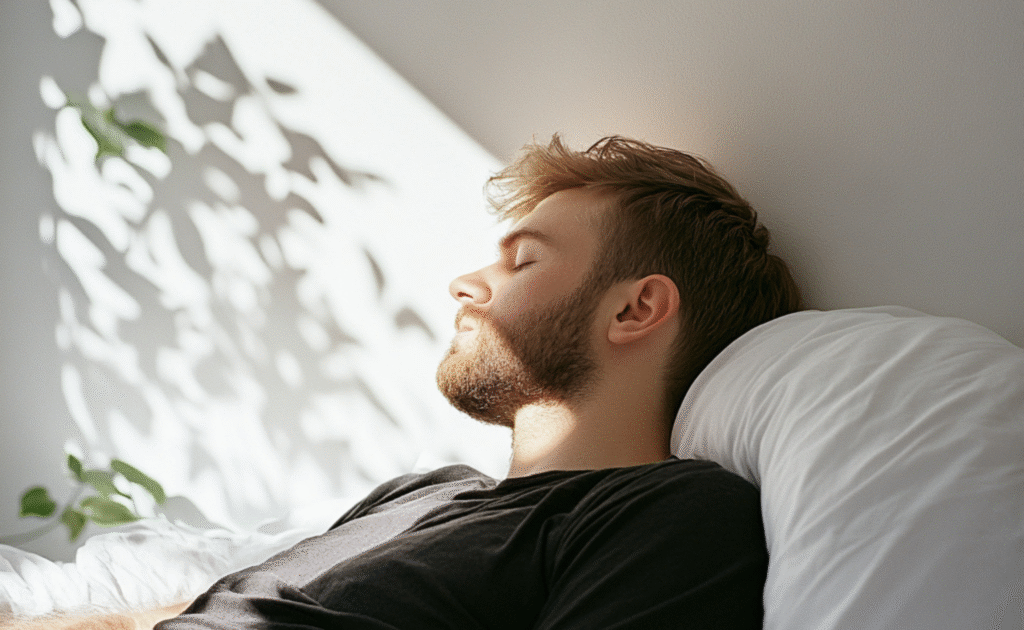
Should You Use NMN for Better Sleep
Here’s what we know:
- NMN may help improve sleep indirectly by supporting NAD+ levels, which influence circadian rhythm and mitochondrial repair.
- The best time to take NMN for sleep benefits appears to be in the morning.
- Results vary—some users experience better rest, while others report stimulation if dosed too late.
You may benefit from NMN if you:
- Struggle with energy crashes or poor recovery
- Have disrupted sleep cycles due to aging or stress
- Want to support long-term longevity and cognitive health
Consult a healthcare provider if you have existing sleep disorders or are taking medications.
FAQs
Does NMN help you sleep better?
NMN may help improve sleep by boosting NAD+ levels, which regulate circadian rhythms and support cellular repair during rest.
Is it safe to take NMN at night?
It’s generally recommended to take NMN in the morning to avoid overstimulation. Some people report poor sleep when taking it late in the day.
Can NMN keep you awake?
Yes, NMN can increase alertness due to its role in energy production. This is why morning dosing is typically advised.
How long does it take NMN to work?
Some users notice increased energy and better sleep within 1–2 weeks, but it can vary depending on dose, timing, and individual metabolism.
Can NMN replace melatonin?
No, NMN doesn’t replace melatonin. It works differently, supporting your body’s natural sleep cycle rather than acting as a direct sleep hormone.
